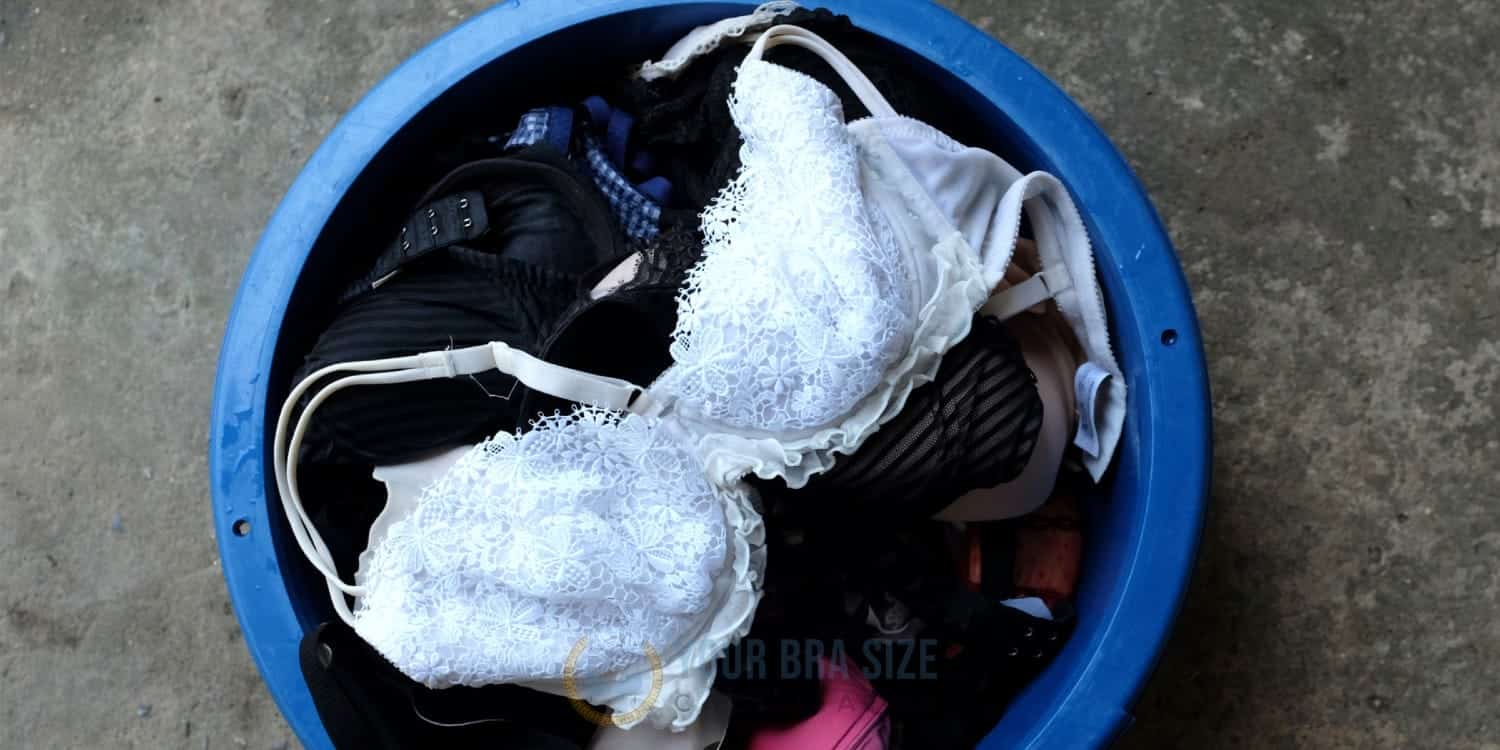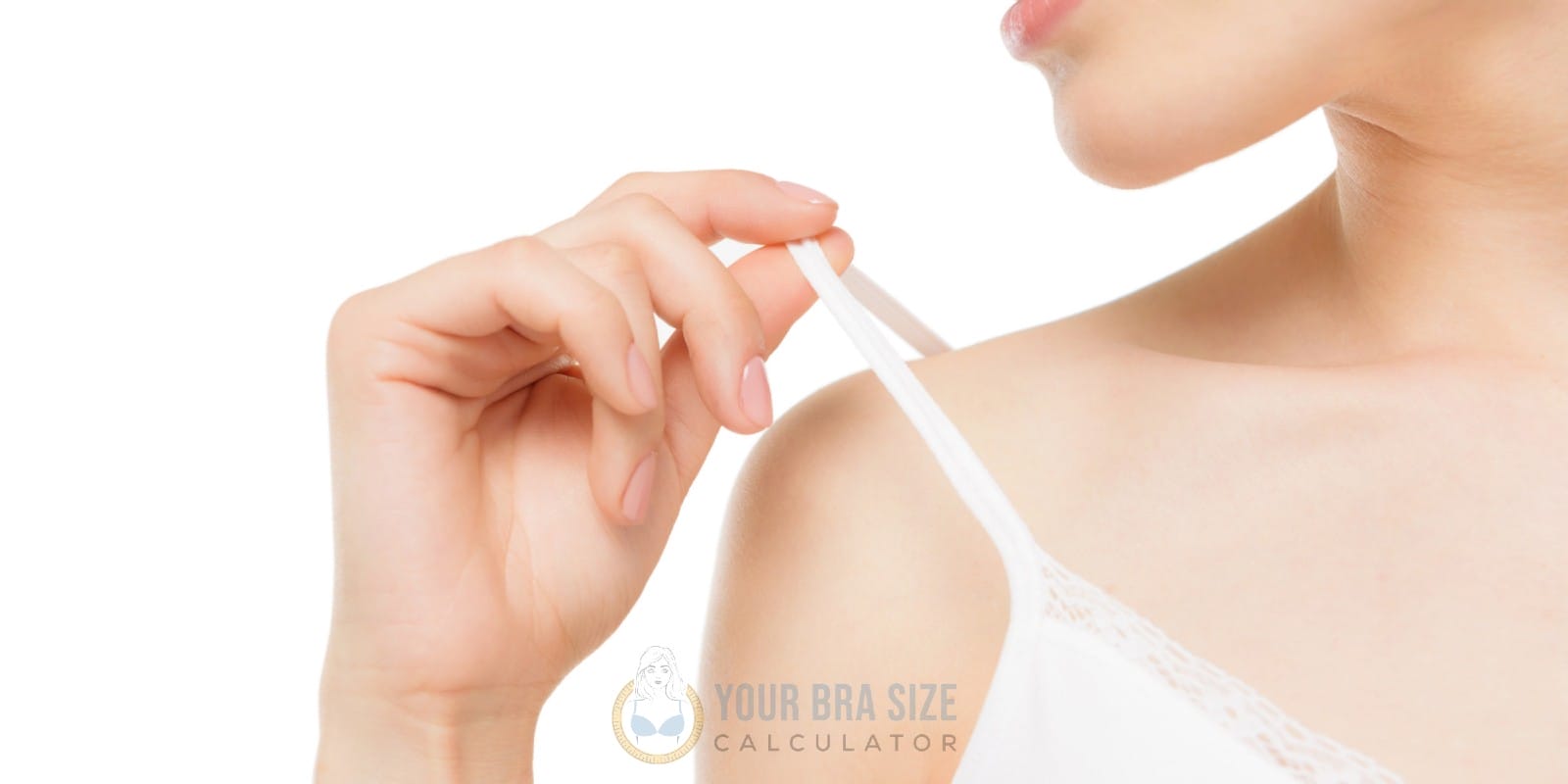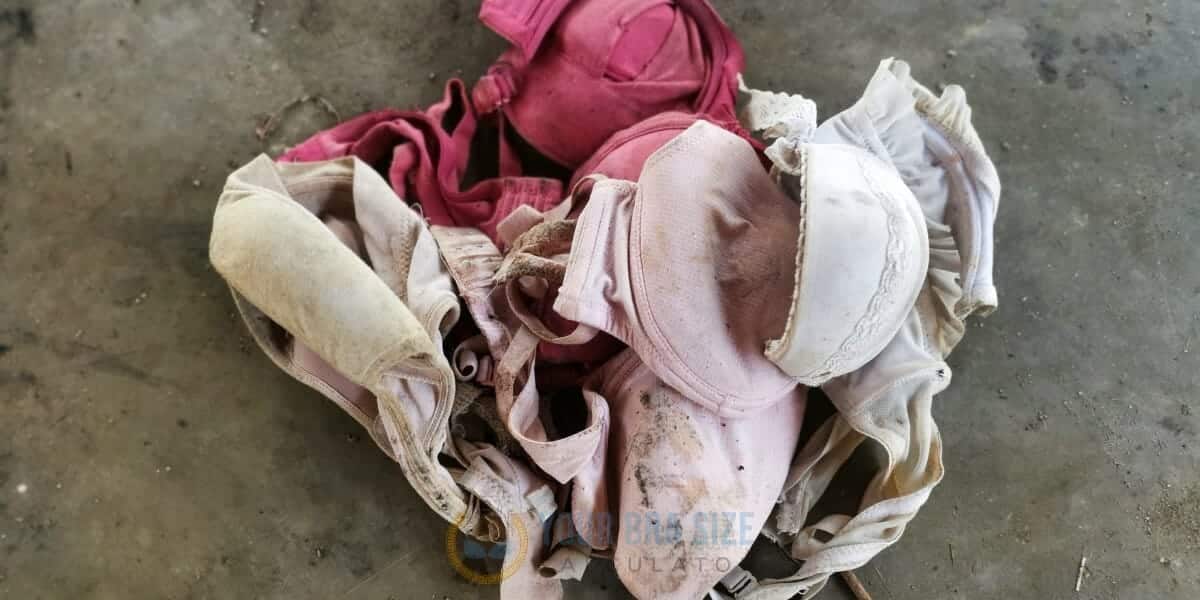For many women, experiencing physical discomfort while sleeping is an all-too-familiar reality. Having large breasts can make finding a comfortable sleep position challenging, and wearing a bra during the night only worsens matters. But what if you’ve had breast reduction surgery? Is there ever a time when you no longer have to wear a bra to bed?
The answer must be clarified and cut; it depends on your needs and your surgeon’s advice. This article will provide insight into when you can safely stop wearing a bra after breast reduction surgery. We’ll discuss how long you should wait before taking off that brassiere for good and the potential risks of ceasing support too soon. Finally, we’ll look at alternatives for nighttime comfort and other tips for recovery from this procedure.
So whether you’re considering or already underwent breast reduction surgery, take some time to read up on this critical topic to enjoy more restful nights in the future!

Definition Of Breast Reduction Surgery
Breast reduction surgery is like sculpting a masterpiece. It involves the removal of excess skin and tissue from the breasts to achieve a smaller, more proportional bust size. Depending on the patient’s specific desires, breast reduction can involve removing fat, glandular tissue, or both to reshape and lifts the breasts. The cost of this procedure varies based on factors such as age, desired outcome, and overall health history. Recovery typically involves some downtime due to swelling and pain that may last up to two weeks after surgery. Afterward, patients should be guided by their doctor’s post-surgery guidelines for proper healing. With these considerations in mind, let us turn our attention to when it is safe to sleep without a bra following a breast reduction procedure.
Post-Surgery Guidelines
Once a patient has undergone breast reduction surgery, specific post-surgery care instructions should be followed. These guidelines will help ensure the best possible outcome and quickest recovery time frame. The doctor may provide post-surgery instructions, such as wearing a compression garment or taking medication to manage pain. Additionally, they suggest avoiding heavy lifting, strenuous activities, or extensive cardio exercise for at least two weeks to reduce strain on the healing process.
It is also important to note that women usually cannot sleep without a bra after breast reduction until their incisions have healed completely, which could take up to three months, depending on individual healing times and the severity of the procedure. Any tight clothing should also be avoided during this period because it can restrict blood flow and cause discomfort near the surgical site. It is essential to follow all post-surgery care recommendations from your surgeon to maximize results and minimize complications during the recovery process.
When patients understand and adhere to these general healing principles following breast reduction surgery, they can look forward to experiencing improved comfort levels and an aesthetically pleasing body contour once fully recovered.
Recovery Time Frame
The recovery time for breast reduction surgery can vary from person to person, depending on their healing process. Generally speaking, most people will need around 3-4 weeks of rest and recovery before they can resume light activities. During this period, wearing a supportive post-surgical bra is essential to protect the incision site and help promote proper healing.
Once a patient has reached the four-week mark after their procedure, it may be possible for them to sleep without a bra if they feel comfortable doing so. It’s essential that patients still use caution when sleeping without support, as this could cause excessive movement over the incisions, which could then lead to complications or delays in healing. Additionally, those who have had a breast lift should take extra care where scarring is concerned; wearing a soft compression garment overnight can provide additional support while allowing skin tissue to heal correctly.
In terms of comfort level and peace of mind during breast reduction recovery, discussing any concerns with your surgeon before proceeding with the procedure is recommended. Your doctor can advise you on what type of sleep support is best suited for your situation and how soon you can begin sleeping without a bra post-surgery if desired. With these tips in mind, transitioning into the next section about the benefits of sleeping without a bra becomes easier.
Benefits Of Sleeping Without A Bra
It is crucial for patients who have undergone a breast reduction to understand the benefits of sleeping without a bra. After this type of surgery, it is typically recommended that women no longer wear an underwire or sports bras during sleep. This can provide improved comfort and reduced pain in the breasts due to the decreased pressure on them from not wearing these types of restrictive garments.
Not only does sleeping without a bra reduce discomfort post-surgery, but it may also help with long-term healing and recovery. Allowing the breasts to rest comfortably against their natural shape will reduce tension on incision sites and other areas where sutures were used to reshape the breasts. Additionally, after proper healing has taken place, going braless while sleeping can improve posture by reducing strain on muscles throughout the body caused by tight clothing.
Finally, sleeping without a bra helps encourage circulation throughout the chest area, promoting healthy tissue regeneration and an overall faster recovery time frame than when bras are worn after breast reduction surgery. The potential risks associated with not wearing a bra while recovering from breast reduction should be discussed with your doctor before making any decisions about nighttime attire.
Potential Risks Of Not Wearing A Bra
As the old adage goes, “prevention is better than cure.” It’s essential to weigh the risks of not wearing a bra after breast reduction surgery against its benefits to determine what will be best for an individual’s health and well-being. The potential risks associated with not wearing a bra include scarring, changes in breast shape or size, pain, and infection.
Scarring is one risk that could arise from not wearing a supportive garment, such as a post-surgery bra, immediately following breast reduction surgery. It can lead to increased swelling without proper compression, which may cause more prominent scars along the incision sites. In addition, if breasts are allowed to move too much during healing, it can delay tissue maturation and result in broader and deeper scars than expected.
Changes in breast shape or size can also be seen when opting out of wearing a post-breast reduction support garment. Without adequate support during the recovery period, there is more chance that tissues can shift into unnatural positions, causing unevenness or altered appearance on both sides of the body. Additionally, without external pressure being applied by a supportive device such as a surgical bra, these areas may become swollen, leading to an increase in cup size or other unwanted changes in the overall aesthetics of each breast.
Lastly, failing to wear an appropriate form of chest support following breast reduction has been shown to have adverse effects on pain levels experienced by individuals throughout their recovery process. Furthermore, studies have indicated that some patients may experience higher infection rates without compression garments due to exposed incisions, leaving them vulnerable to bacteria entering open wounds.
It’s clear that while removing tight clothing like bras might sound appealing after undergoing major surgery, considering all these factors carefully should always come first before deciding about dressing choices at home.
Alternative Support Options
It is not recommended to sleep without a bra after breast reduction. However, some patients may choose to do so. It is important to remember that the healing process can take several weeks, and it may be necessary to wear support garments during this time in order for proper recovery. Breast-reduction bras are designed for comfort and provide additional support while sleeping or during exercise. Post-surgery swimsuits are also beneficial if the patient plans on swimming soon after the procedure.
Bralettes have become increasingly popular after surgery due to their lighter-weight materials and more comfortable fit than traditional bras. They should still provide adequate coverage but with less compression than other support garments. Compression garments specifically designed for breast reduction can help improve recovery by giving extra support and reducing swelling in the incision area. Additionally, post-surgery camisoles offer another option that may relieve pressure on sensitive areas while allowing movement throughout activities like yoga or pilates.
Support garments come in many shapes, sizes, colors, and designs – making them suitable for any lifestyle preference. Patients should consult their doctor before selecting a garment they feel best suits their needs. Considering all of these factors can help ensure a successful recovery period following a breast reduction procedure.
Frequently Asked Questions
How Much Does Breast Reduction Surgery Cost?
The irony is a funny thing. You’d think the cost of breast reduction surgery would be as small as its results. Unfortunately, this couldn’t be further from the truth – breast reduction surgery can come with an eye-watering price tag. So, let’s consider how much you could expect to pay for your breast reduction if you’re considering taking the plunge.
When considering breast reduction surgery costs, insurance may play a role in your out-of-pocket expenses. Many policies cover some or all breast reduction procedures depending on why it’s being done and whether it is medically necessary or cosmetic; however, you should always check with your insurer before having any work done. In addition to insurance coverage, other factors such as geographical location and the surgeon’s fees affect the overall cost of breast reduction surgery.
The cost of a breast reduction varies greatly depending on where you live and who is performing the procedure; however, generally speaking, prices range from around $4,000 up to $10,000 for both breasts combined – far higher than many people anticipate! For example, a standard essential Breast Reduction Surgery Cost in the UK ranges between £3200 to £6000. At the same time, in Australia, it might set you back anywhere between AU$5000 – AU$9000.
No matter where you go for your treatment, thoroughly research any clinic or surgeon beforehand and ensure they are qualified and experienced enough to carry out the procedure safely and successfully. After all – when it comes to body modifications like these – getting it right the first time is essential!
Does Insurance cover Breast Reduction Surgery?
Regarding breast reduction surgery, insurance coverage is an essential factor to consider. Not all health plans will cover the cost of this type of procedure, leaving many individuals with a hefty bill that they may be unable to afford. It’s also essential to understand the potential long-term effects and lifestyle changes associated with this type of surgery before deciding. Here are five key points regarding breast reduction surgery and insurance coverage:
- Insurance policies vary widely, so checking your plan details before committing to any procedure is essential.
- The cost of breast reduction surgery can range from several hundred dollars to tens of thousands, depending on the extent of the procedure.
- There may be dietary restrictions or other lifestyle modifications required for recovery, which should be discussed with your doctor beforehand.
- In some cases, surgeons may recommend additional procedures such as liposuction in order to achieve optimal results—these costs would need to be taken into consideration when deciding if you want or can afford the surgery.
- Certain types of cosmetic surgeries, such as breast reductions, are typically considered elective rather than medically necessary by most insurers, meaning they won’t cover them unless there is a special exemption through their policy.
It’s essential that anyone considering undergoing breast reduction surgery first research their options thoroughly and consult with both their physician and insurer before scheduling any appointments or signing contracts. By understanding what is covered under each individual’s policy, patients can make informed decisions about whether or not this type of procedure is right for them, given its financial implications and potential long-term effects and lifestyle adjustments involved.
What Are The Long-Term Effects Of Breast Reduction Surgery?
Many people focus on the immediate results and recovery period when it comes to breast reduction surgery. But what about the long-term effects? It’s essential to know how your body will be affected in the long run after a breast reduction procedure so that you can make informed decisions and take steps to ensure a successful outcome. Here we’ll explore the long-term effects of breast reduction surgery, including scarring after the surgery, permanent results, lifestyle changes, and more.
Scarring is one of the most common concerns for those considering a breast reduction procedure. While some scars may remain visible, they often fade over time with proper care and healing. Additionally, modern surgical techniques are available that help reduces scar visibility even further. Ultimately, patients should discuss their options with their doctor before making any final decisions when it comes to scarring after a breast reduction procedure.
The good news is that once completed, the breast reduction results are generally considered permanent or at least semi-permanent if weight gain occurs post-surgery. This means that individuals can achieve desired aesthetic goals and enjoy improved physical comfort due to reduced strain on shoulders and back, which had been caused by breasts weighing too much prior to surgery. However, specific lifestyle changes, such as maintaining an ideal weight level, may need to be adopted to maintain these positive outcomes over time.
It’s clear that while understanding all aspects involved in getting breast reduction surgery is essential for anyone interested in this type of procedure – from initial consultation through recovery – knowing about the potential long-term effects beforehand helps set realistic expectations for both short-term and lasting results the road.
Are There Any Lifestyle Changes Necessary After Breast Reduction Surgery?
Regarding breast reduction surgery, one of the most critical topics for many patients is understanding what lifestyle changes are necessary after surgery. People must understand what post-surgery instructions and advice they should follow to ensure a successful recovery process. With this in mind, are any lifestyle changes necessary after breast reduction surgery?
The answer is yes; making certain adjustments to your lifestyle can help you experience the best possible results from your procedure. Some of the most common lifestyle changes recommended include avoiding strenuous activities or heavy lifting for four weeks following the operation, abstaining from smoking before and during recovery time, and wearing a supportive bra day and night for several weeks—or even months—after surgery. Additionally, some surgeons advise against sleeping without a bra on while recovering, as this could cause discomfort or pain due to movement at night.
In addition to these recommendations, there may be other personalized lifestyle advice given by your surgeon, depending on their preferences regarding breast reduction recovery. They suggest specific exercises or medications that should be followed carefully throughout the healing period to maximize satisfaction with results. Of course, each person’s situation will differ, so it is essential to speak with your doctor about what precautions you need to take regarding lifestyle choices post-surgery.
Taking steps towards changing certain aspects of your life can make all the difference when it comes to achieving an ideal outcome from breast reduction surgery. While everyone’s needs vary widely based on unique factors such as medical history and body type, consulting with your doctor prior to undergoing any treatment can provide helpful guidance on how best to adjust your current lifestyle habits accordingly.
Are There Any Dietary Restrictions After Breast Reduction Surgery?
Following breast reduction surgery, it is essential to understand the dietary restrictions associated with post-surgical recovery. To ensure a successful outcome, individuals should familiarize themselves with the nutritional advice specific to this procedure.
When assessing what foods to avoid after breast reduction, one must consider that particular food and beverage item can hinder healing and may lead to infection or poor wound closure. Here are some valuable tips for those who have recently undergone such an operation:
- Avoid consuming alcohol for at least 1-2 weeks following the operation.
- Refrain from eating overly salty or spicy dishes, as these can cause inflammation in the area surrounding the incision sites.
- Minimize caffeine consumption, as it could potentially increase your risk of complications related to tissue swelling and pain management medications.
- Limit sugary drinks and processed snacks, which can contribute to slower healing times and increased discomfort levels during recovery.
These are just a few examples of helpful guidelines when determining what types of foods best suit a person’s individual needs when recovering from breast reduction surgery – although each patient’s situation is unique so consulting their doctor or nutritionist is always recommended to receive tailored advice on their diet plan in the future!
Conclusion
In conclusion, breast reduction surgery is a viable option for women looking to reduce their breasts’ size. According to statistics, over 90% of patients who have undergone this procedure reported feeling more satisfied with their appearance after the surgery. Although some lifestyle and dietary restrictions following a breast reduction operation may exist, most people find these do not interfere significantly with their daily lives.
It’s important to remember that each person heals differently, so it will likely vary when you can sleep without wearing a bra post-surgery. Generally speaking, however, your doctor should advise you on how long you should wait until taking off your bra during restful periods – typically around two weeks or less from the surgery date. If discomfort persists beyond this point, consult with your physician as soon as possible to ensure proper healing and avoid any potential complications.
Reducing one’s bust size through breast reduction surgery offers many physical and emotional benefits, which can significantly enhance the quality of life in the long run. It’s always best to discuss all options thoroughly with your healthcare professional before deciding about undergoing such an operation.








